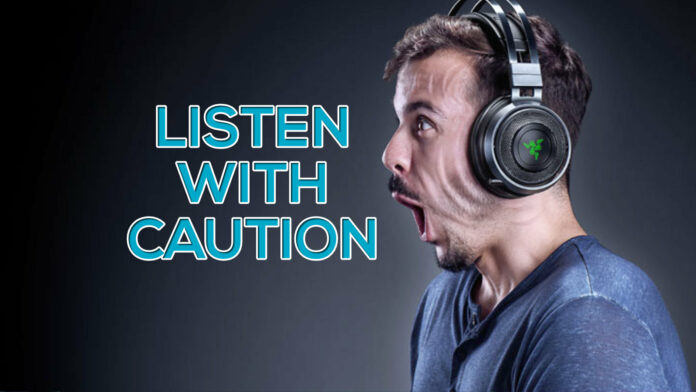Sound is one of the most important aspects of gaming. Competitively, it can help you distinguish footsteps and the direction they’re travelling. Recreationally, it can grip you and improve immersion. You better be careful, though. New research shows that gamers are at an elevated risk of hearing loss or tinnitus.
The World Health Organisation (WHO) already recognises recreational high intensity sounds as a leading cause of hearing issues. Until now, though, we’ve primarily looked towards concerts and gigs as the main driver. Five researchers have since collated 14 peer-reviewed studies centred around 54,000 people, publishing their investigation in BMJ Public Health Journals. The conclusion suggests we should count gaming as a likely source of unsafe listening.
Permissible sound levels are difficult to define based on region and regular fluctuation. This paper says that the average person handles an intensity of 80dB for 40 hours per week. We then need to halve the amount of time we can withstand for every 3dB added, becoming 20 hours for 83dB, ten hours for 86dB, and so on.
Based on this, mobile gamers seem least at risk, with one study suggesting smartphone gamers hit an average of 43.2dBA. Populated gaming centres can reach over 90dBA with an average of three hours per visit, sometimes twice per week, putting attendees more at risk.
Those willing to whack a pair of cans over their ears are perhaps in the most danger due to longer continuous exposure. One study documents console users with gaming headsets exceeding an average of 91.2dBA in FPS games. Sudden sounds push past this, with gunfire and explosions increasing the peak noise levels. Racing games don’t fare much better with an average of 85.6dBA. Naturally, loud revving engines often nudge it higher, skirting along the maximum accepted noise levels.
This research is far from definitive or an accusation against our favourite hobby. The authors openly state that we need “additional research on these relationships” and to conduct more studies into the area. They also admit that not all studies are representative of the modern day, with two conducted as early as 1983 and 1992. The goal of this is simply to recognise potential causes of hearing loss or tinnitus and “prioritise interventions” to keep people safe.
It doesn’t help that most gaming headset brands tune devices to push bass more than any other frequency. I’m far from a researcher but having tested a lot of products over the years, I can say with certainty that things get distorted very quickly without a balanced mid-range.
Some headset brands bake in volume limiters. I’m willing to bet several of you have already turned this off simply because it isn’t loud enough. Very few of us monitor the sound levels we enjoy beyond tuning the volume to our preference. It’s difficult to notice when that exceeds acceptable levels until the damage is already done.
For now, it doesn’t hurt to turn your volume down a bit and take regular breaks. If you notice any ringing in your ears, seek medical assistance from your doctor and steer clear of gaming until you’re in the clear. As much as we love the hobby, nothing’s worth permanent damage to your hearing.

